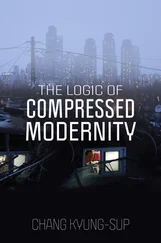“Of course! We always do things together, don’t we?”
“But would you have liked me, if you were just one of us?”
“Don’t be silly.”
“But would you?”
“Yes.”
“Say it again.”
“Yes! Yes!”
June never fully believed her, though it hardly mattered. That she and Sylvie were together each day, that she could work in their house from after studies until bedtime, that she could always be within arm’s reach, this was the world for her, her only extravagance and riches. And it was reciprocated; even in the face of Reverend Tanner, who showed a growing antipathy to her presence, sometimes hardly even greeting her, Sylvie never minded her staying an extra hour, or two.
And although it was true that Sylvie was no longer mentioning adopting her and taking her to America, June was sure that it was Sylvie’s way of respectfully allowing her husband to sit with the prospect, that he needed more time with the idea of having a child who wasn’t his own. She knew about their fertility troubles, if only from having stolen peeks at Sylvie’s leather-bound diaries, a collection of which she kept in a trunk beneath her bed. They were dated from the early 1930s and came all the way up to their arrival here, recounting her travels with her missionary parents and her adolescent and university days in Seattle and then her marriage to Ames Tanner. Sylvie had become pregnant a number of times but they had given up trying some years ago and June could begin to understand what they were doing in Korea, certain there must be reasons besides goodness and charity for them to have come to a place as awful as this. They could not possibly be there only to give of themselves. They were hoping for something, too, and in the tireless device of her mind she was figuring how she could give them what they wished. It was finally within her power. For the best thing about the orphanage for June was not ultimately its offer of food or shelter or schooling but that it was a world unto itself, though in a manageable scale, a world she could now exert herself upon, remake as she required.
So she resolved herself to be disciplined and not bring up anymore the question of her adoption. She would patiently wait. Her bond with Sylvie was not just of a mother and daughter but that of comrades who by the curse of war had been sentenced to be alone.
The one omission in the diaries, she noticed, was any mention of Sylvie’s parents’ deaths. Sylvie had already told her they had died in Manchuria, where they were missionaries in a place much like New Hope, and June imagined Sylvie to have been orphaned like herself, cast out on a solitary road, compelled to make her way back to life by the force of her own tireless will. There were many years separating them, of course, this again would be a question of waiting out time, and she saw herself in their resumed lives as Sylvie’s secretary and housekeeper, her girl-in-waiting, her handmaiden, someone she could use and count on at any moment of the day or night. She would be indispensable to her, and in return Sylvie would envelop her with her passion and grace, guide her through her education to her own womanhood, when June would not marry unless she had Sylvie’s blessing, indeed perhaps never abide anyone else as closely, as purely.
June knew the depth of her own feelings, for it didn’t please her at all to see how deadened the Tanners’ marriage had become. She could hardly bear Sylvie’s unhappiness. No one else could know, as she did, how they were so wanly self-encapsulated, how they rarely touched each other anymore, not even a hand on the arm, the briefest embrace. They spoke to each other warmly enough while out on the orphanage grounds but in the house they seemed caught in their own cold amber, June stripping their separate beds once weekly, the sheets redolent of nothing but sleep. Yet she couldn’t help but feel sorry for Reverend Tanner as well. Late one afternoon, while he was writing letters at his desk and she was in the back room making up his wife’s bed-Sylvie was helping Hector with the last of the digging for the new sewer-Tanner called her name. She assumed she’d misheard him but he called again.
“June, would you come here, please?”
She came out holding a dusting rag lightly dampened with lamp oil and began wiping the top of the rolltop desk.
“That’s all right, June,” he said, motioning for her to stop. “I didn’t mean that. Please sit down.”
He’d never offered her such a courtesy before, and she was hesitant to take it.
“You don’t have to sit,” he said, taking off his bifocals. The sleeves of his white shirt were crisply ironed, the fabric against the mottled skin of his wrists as papery as the stiff white linen garments the dead were clothed in.
“How old are you, June?”
“Fourteen.”
“You’ve been here since the end of the war, haven’t you?”
“Yes.”
“It’s fine here, but it’s not a home, is it?”
She didn’t answer.
“I wonder: Do you know what you’d like to be when you’re an adult? Would you like to have your own family?”
She nodded, not because she definitely wanted one or had even considered it, but because she was sure that was what he wanted to hear.
“Mrs. Tanner and I would have enjoyed our own family, too. We weren’t graced in that way. But we have all of you now, and we’re very pleased. I value being here, among all of you.”
“Yes.”
“Mrs. Tanner thinks a great deal of you. You know this, obviously. She admires your intelligence and spirit. Your resolve. Do you understand what that is?”
“She says I don’t like to give up.”
“That’s right. You may be surprised to hear this, but I admire that about you as well.”
June said thank you, not knowing how else to reply. She was uneasy in his presence always, but now only more so, given how directly he was speaking to her. With his graying cowlick loosened and flopped down over his brow, his long, narrow face seemed softer, younger. His eyes were very blue up close, the color of the fancier marbles her younger brother used to play with.
“When I’m away on my trips to the other orphanages, I’m sure you spend more time with Mrs. Tanner. You don’t have to deny it. It’s all right. This last time I was away, I was worried about her. She hasn’t been herself of late, as you know.”
“She is tired often,” June said, recounting herself how many times in the last weeks Sylvie had asked her to leave so she could rest.
“Yes,” Tanner said ruefully. “But one of the things that gave me comfort was that she had you to keep her company. I see the benefit of this now.”
“I try to help her with many things.”
“Yes, yes. Please keep doing so, especially when I’m away. She gives herself so completely to the demands of the orphanage, and by the end of the day she has nothing left. I think she has begun to suffer for it.”
June nodded. Indeed she was suffering, which the aunties saw as physical illness brought on by exhaustion, the untreated water, the strange food, by having to wake each morning to a sad, destroyed land. This often happened to foreign aid workers, they said. At some point they just broke down. But June knew Sylvie’s trouble had less to do with the conditions than with something else, that she had fallen into what she referred to in her diaries as “the ash pit,” a hole that seemed to drain all her energy and will. It seemed to June the condition would come and go mysteriously. At first when Sylvie didn’t appear at the morning meal, Reverend Tanner would announce that she had taken ill and was resting, but as the frequency had increased in the past weeks he did not say anything, and someone like young Reverend Kim would suddenly appear to teach her class for the day, and sometimes the next. And when this was the case, June would know she could simply let herself inside the cottage in the afternoon and do her chores, though not to knock on the bedroom door if it was shut. Sometimes she wasn’t napping but sitting as still as a stone on the wooden step out back, and when she’d see June she’d smile and beckon to her, let her sit beside her and embrace her with her long, slack arms. They wouldn’t talk or even move, the woman’s breathing faint and shallow. If Reverend Tanner showed up they would separate and sit up and she would notice how Sylvie would instantly brighten for him but then practically collapse the moment after he left. One day it was raining and she found Sylvie outside again on the step but this time she was sitting with her head on her knees, her wool sweater and housedress soaked through, her hair a matted, tangled mess, the shivers visibly running through her body but going completely unregistered in her face, a lifeless mirror of the chalky, overcast sky.
Читать дальше











